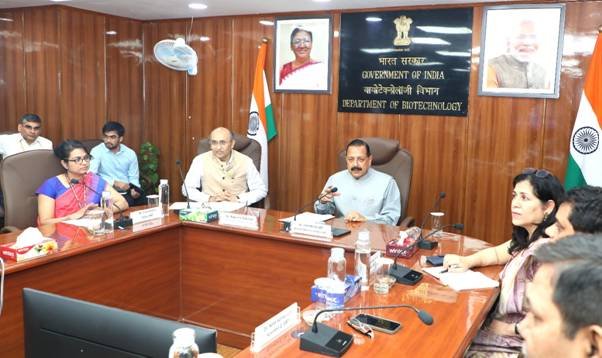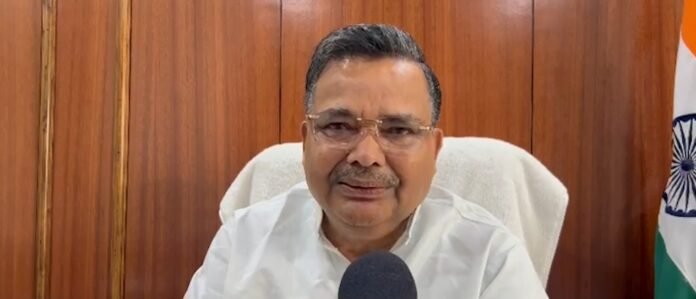In New Delhi, Union Minister of State Jitendra Singh highlighted how a stronger regional biotech network can boost India’s innovation and boost the economy. He spoke while chairing a review meeting of the Department of Biotechnology (DBT), where he went over current projects and fresh plans designed to widen the country’s bio‑innovation map.
By building bio‑foundries and regional innovation hubs, the DBT aims to turn state strengths into national biotech pilots. “We need to strengthen local ecosystems and work closely with state governments and local players,” Singh said. He reminded listeners that the biotechnology sector has become a major pillar of India’s development, supporting healthcare, agriculture, the environment and industrial progress.
The minister explained the government’s strategy: tie research labs, startups and local governments together in one shared innovation platform. According to him, DBT’s research in human physiology, metabolic science and health tech will also help shape performance science, tying biotech with sports and health.
Singh pressed the importance of regional action for the next phase of India’s bio‑innovation journey. The DBT has begun mapping states by their biotech potential and plans to set up Bio E3 Cells—a key element of the larger Bio E3 policy that focuses on entrepreneurship, education and empowerment in biotech.
The objective, he explained, is to match national priorities with each state’s unique strengths. By doing so, states can spot their own opportunities in the biotech value chain and grow them with targeted support. This approach aims to bring new biotech jobs, products, and growth closer to local communities while keeping India at the forefront of global biotechnology innovation.
Source: ianslive
Stay informed on all the latest news, real-time breaking news updates, and follow all the important headlines in world News on Latest NewsX. Follow us on social media Facebook, Twitter(X), Gettr and subscribe our Youtube Channel.



